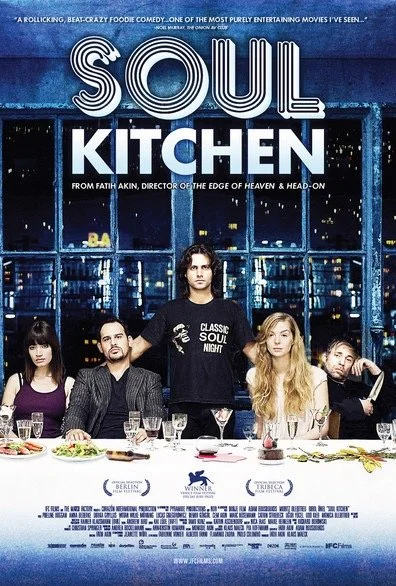- Activism
- Animation
- Asylum
- Austria
- Berlin
- Black Germans
- Childhood
- Cologne
- Colonialism
- Comedy
- DDR
- Documentary
- East/West Germany
- Environment
- Food
- Hamburg
- Health
- Holocaust
- Immigration
- Intergenerational Families
- Jewish
- Judicial system
- Lesbian/Gay
- Lübeck
- Munich
- National Socialism
- Politics
- Pomerania
- Racism
- Religion
- Sexism
- Short films
- Stuttgart
- Switzerland
- Twins
- Weimar Republic
Auf den zweiten Blick / At Second Glance
At Second Glance is set in Berlin and features three couples living with vision loss. This thought-provoking movie about love and perception asks us to engage with, and expand, our understanding of diversity, including different abilities.
This award-winning film centers on Kay and Falk, Benjamin and Elena, Till and Pan in the big city juggernaut Berlin—who meet, discover and feel attracted to each other.
Soul Kitchen
Soul Kitchen is a 2009 German comedy film directed by Fatih Akın, with a screenplay by Akın and Adam Bousdoukos. Bousdoukos based the story on his own experiences as the owner of a Greek tavern named “Taverna,” where Akın was a regular customer. Akın filmed the movie entirely in the Hamburg area.
Evet, ich will!
Evet, ich will is a refreshing Turkish–German comedy about four cross-cultural couples in Berlin. All are challenged to grapple with political, cultural, and religious differences in the name of love.
Der Fall Collini
“Courtroom drama meets political thriller worthy of John Grisham in this explosive, spellbinding story about a young lawyer who comes across one of the biggest judicial scandals in German history and a truth that nobody wants to face. Fabrizio Collini (legendary Italian actor Franco Nero) is recently retired. He’s a quiet, unassuming man with no indication that he’s capable of hurting anyone. And yet, he brutally murders a prominent industrialist in one of Berlin’s most exclusive hotels.
Alamanya: Willkommen in Deutschland
Six-year-old Cenk Yılmaz is faced with the question of his identity when he is not voted into either the Turkish or the German soccer team at his German school. As the son of Ali, who is of Turkish origin, and his German wife Gabi, he does not speak Turkish.
At a family celebration, his grandmother Fatma announces that he has recently been naturalized in Germany, and grandfather Hüseyin explains that he has bought a house in his home village in Turkey that he wants to use as a summer residence. In order to renovate it, he decides that the entire family will go there for the holidays.
Die Fremde
A Turkish German woman wages a near-hopeless battle to assert her independence from the oppressive values of her family and their Old World culture in When We Leave, a doleful melodrama. There are some intense, moving sequences, but too much emotional badgering and a general shortage of finesse. The beleaguered central character, Umay (Sibel Kekilli), a German-born woman of Turkish background, suffers physical abuse from her husband in Istanbul. Pushed beyond her limit, she flees with their young son (Nizam Schiller) to her family in Berlin, where she hits a wall of cultural attitude. By leaving her husband and, worse yet, taking the boy, she has brought shame on the family. (San Francisco Chronicle)
Director Feo Aladag made the movie in the wake of a series of honor killings in Germany's Turkish community.






